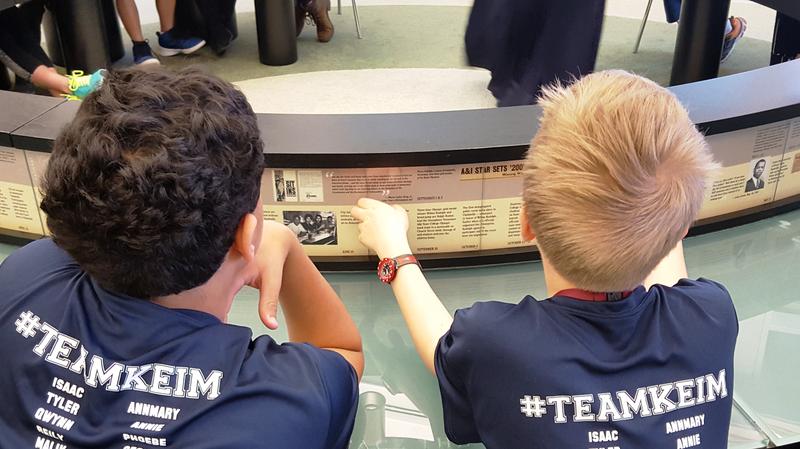Vote, But Your Civic Engagement Doesn’t End There
Millions of Americans voted last Election Day. But millions of others participate in our democracy every day in small ways. While 7 in 10 Americans report feeling generally negative about what is going on in the country today, Americans are also more hopeful about solving problems locally. According to the 2018 Civic Engagement Survey by the Public Religion Research Institute and The Atlantic, a majority of Americans say they are optimistic that people in their communities who hold different political views can come together to solve problems.
We explore that problem solving on this hour all about civic engagement. We begin by explaining exactly what civic engagement is, how it works, and where it happens.Priya Parkeris a conflict resolution facilitator, author of “The Art of Gathering: How We Meet and Why it Matters” andHollie Russon Gilmanis a lecturer at Columbia University and co-author of “Civic Power: Rebuilding American Democracy in an Era of Crisis.”
The Takeaway is then joined by Mamaroneck High School government teacherJoseph Liberti, who started a new program to get his students civically engaged in their local community. One of his students, 15-year-old sophomore Simon Worth, also speaks about his experience with the hands-on program.
Then we turn and look at the Congressional Management Foundation. For decades, the CMF has researched citizen engagement with Congress. We talk toBradford Fitch, the President,andCEO of CMF, about the huge increase in communications volume being reported by Congressional offices and in town hall meetings in the year after the election, and whether that enthusiasm and engagement persist today.
Librarians across the country strive to serve the needs of their communities, but from city to city, those needs don’t always look the same.
In Nashville, Tennessee, as the Black Lives Matter movement was growing across the country, librarians noticed a growing demand within their community to have honest conversations around issues of race. Since then, the library has facilitated discussions for a variety of different groups including local law enforcement, college students, and corporations.
Andrea Blackman is the director of the Civil Rights Room at the Nashville Public Library. She joins The Takeaway to explain how her library has started conversations on racial justice within the Nashville community.
Does this moment of vigorous civic engagement extend to giving and philanthropy, too? In 2017, Americans gave more than four hundred billion dollars to charity. But exactly who is giving that money, where they are donating, and why they choose to give — that’s all been changing, in recent years.Stacy Palmer, the editor of the Chronicle of Philanthropy, brings us through what we know about American charitable giving today.
In practice, all this civic engagement can become pretty difficult if people can’t find common ground. And who steps in when the government can’t bridge the gap? Sometimes — it’s religion.
Alan Yarborough,the Communications Coordinator for the Episcopal Church’s Officeof Government Relations, also created a 5-week curriculum on civil discourse for churches to use.
Bill Steverson,is amember of St. Timothy’s Episcopal Church in Signal Mountain, Tennessee near Chattanooga.
Note: This segment originally aired on November 6, 2018.
Click on the ‘Listen’ button above to hear this segment. Don’t have time to listen right now? Subscribe to our podcast via iTunes, TuneIn, Stitcher, or wherever you get your podcasts to take this segment with you on the go.
Want to comment on this story? Share your thoughts on our Facebook page or Twitter.
Every day, reporters and producers at The World are hard at work bringing you human-centered news from across the globe. But we can’t do it without you. We need your support to ensure we can continue this work for another year.
Make a gift today, and you’ll help us unlock a matching gift of $67,000!
